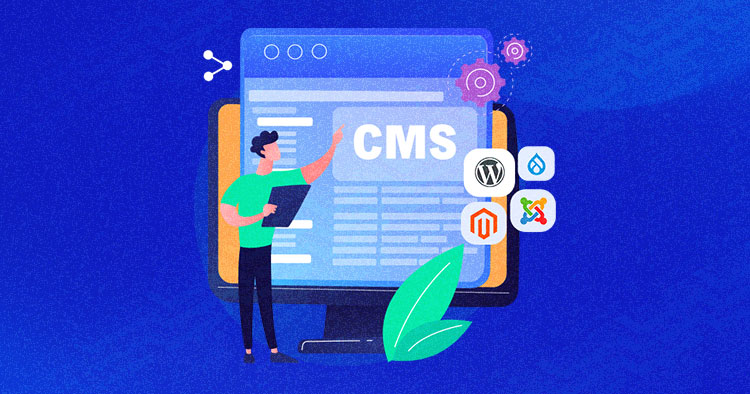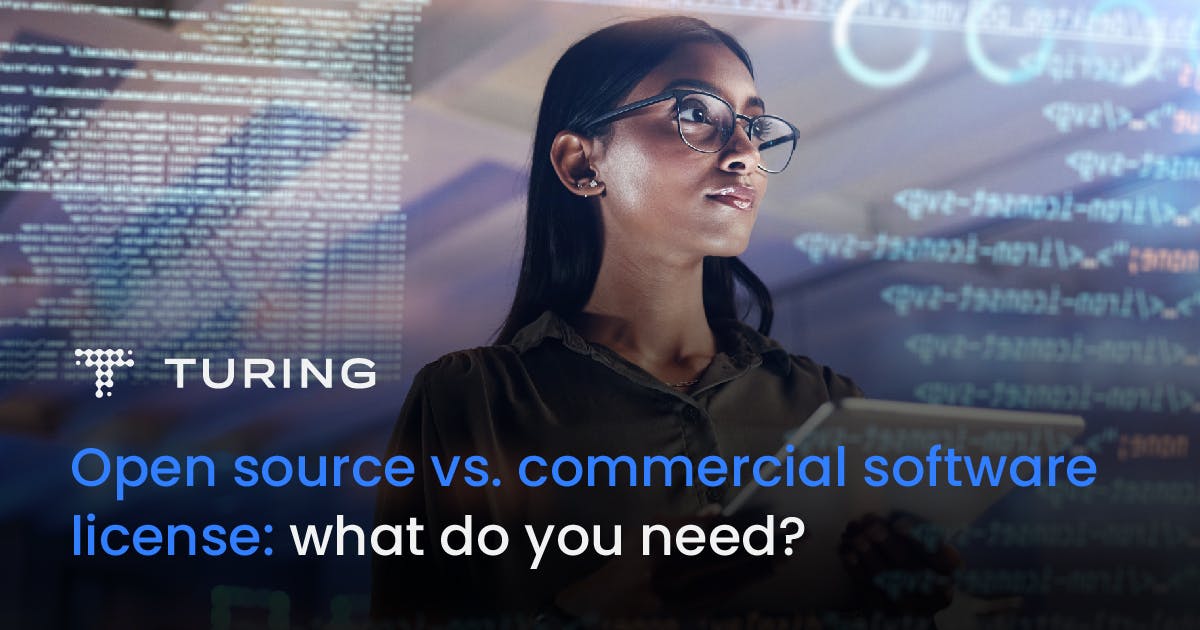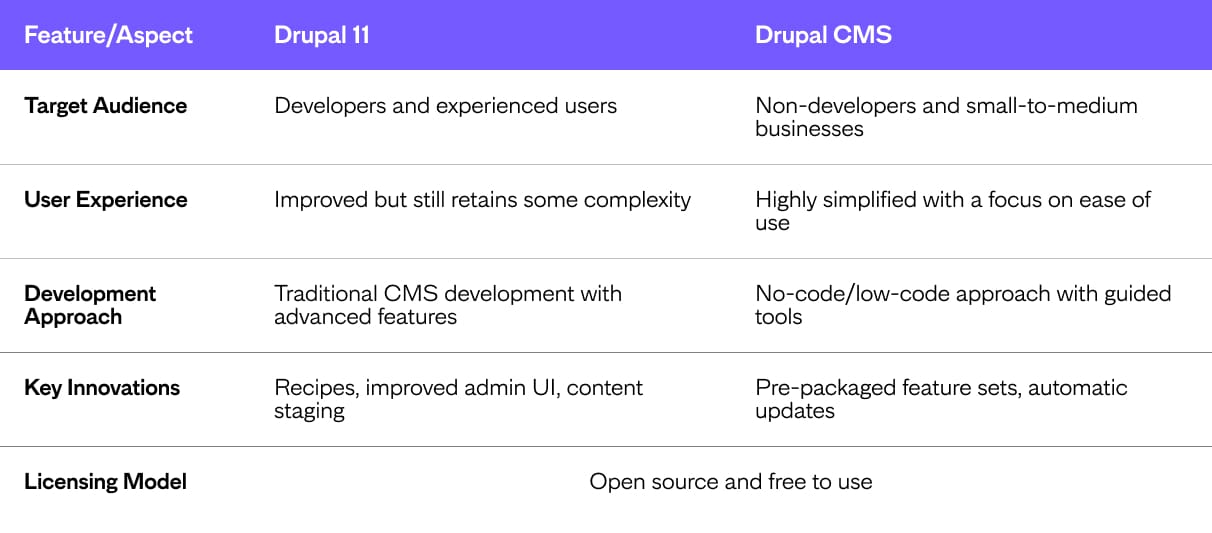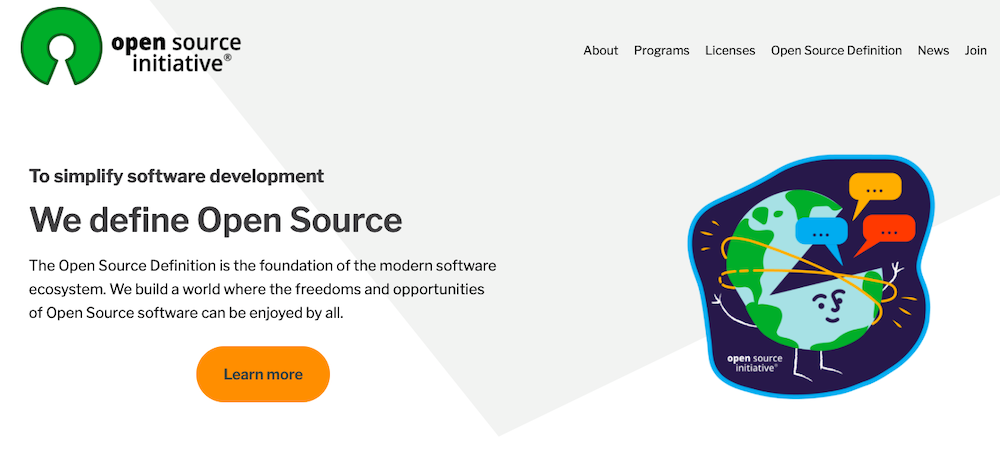Choosing Your Digital Foundation: A Comprehensive Look at Commercial vs. Open Source CMS
In today's dynamic digital landscape, establishing a robust online presence is paramount for businesses of all sizes. At the heart of this presence often lies a Content Management System (CMS), the engine that powers your website and facilitates the creation, management, and delivery of your valuable content. However, navigating the diverse landscape of CMS options can be a daunting task. One of the fundamental decisions you'll face is whether to opt for a commercial CMS or an open-source CMS. Each path offers distinct advantages and disadvantages, and understanding these nuances is crucial for making an informed choice that aligns perfectly with your business objectives, technical capabilities, and long-term growth strategy.
Understanding the Core Differences: Ownership and Licensing
The most significant differentiator between commercial and open-source CMS platforms lies in their ownership and licensing models. A commercial CMS is proprietary software developed and maintained by a specific company. You typically acquire a license to use the software, often involving recurring fees based on factors such as the number of users, website traffic, or specific features. This licensing fee essentially grants you the right to utilize the platform under the terms and conditions set forth by the vendor. Think of it as subscribing to a service that provides you with a fully functional and supported CMS.
Conversely, an open-source CMS is characterized by its publicly accessible source code. This means that the codebase is freely available for anyone to view, modify, and distribute, typically under an open-source license like the GPL, MIT, or Apache. While the software itself is often free to use, businesses may still incur costs related to hosting, development, customization, and potentially premium themes or plugins. The beauty of open source lies in its community-driven development, where a global network of developers contributes to its growth, security, and feature set.
Delving into the Feature Landscape: Out-of-the-Box Functionality and Extensibility

Commercial CMS platforms often come equipped with a comprehensive suite of built-in features designed to cater to a wide range of business needs. These functionalities can include advanced content management tools, sophisticated marketing automation capabilities, robust e-commerce integrations, dedicated customer support modules, and enterprise-level security features. The focus is often on providing a polished and integrated experience right out of the box, minimizing the need for extensive customization or third-party integrations. This can be particularly appealing for businesses seeking a streamlined solution with predictable functionality and vendor-provided support.
Open-source CMS platforms, while often providing a solid foundation of core features, typically excel in their extensibility and flexibility. Their open architecture allows for extensive customization through themes, plugins, and custom code development. This empowers businesses to tailor the CMS precisely to their unique requirements and integrate seamlessly with a vast ecosystem of third-party services and applications. While this flexibility offers immense potential, it may also necessitate a greater degree of technical expertise for setup, configuration, and ongoing maintenance. The availability of a thriving community often translates to a vast marketplace of both free and premium extensions, offering solutions for virtually any conceivable functionality.
The Crucial Aspect of Support and Maintenance: Reliability and Expertise
One of the key advantages often cited for commercial CMS solutions is the availability of dedicated customer support provided by the vendor. This can be invaluable for businesses that lack in-house technical expertise or require timely assistance with critical issues. Commercial vendors typically offer various support channels, including phone, email, and live chat, along with comprehensive documentation and service level agreements (SLAs) that guarantee response times and resolution targets. Furthermore, the vendor usually handles core software updates, security patches, and ongoing maintenance, reducing the burden on the business's IT resources.
Open-source CMS platforms, on the other hand, primarily rely on community support forums, online documentation, and the expertise of independent developers and agencies. While the community can be a rich source of information and assistance, response times and the availability of guaranteed support can vary. Businesses utilizing open-source CMS often need to either possess in-house technical expertise or engage external developers for customization, maintenance, security updates, and troubleshooting. While this can offer greater control and potentially lower long-term costs, it also places a greater responsibility on the business to ensure the platform's stability and security.
Considering the Cost Implications: Initial Investment vs. Long-Term Expenses

The cost structure of commercial and open-source CMS differs significantly. Commercial CMS typically involve upfront licensing fees and recurring subscription costs, which can represent a substantial initial investment and ongoing operational expense. However, these fees often include access to dedicated support, regular updates, and a comprehensive suite of features, potentially reducing the need for additional investments in third-party extensions or external development.

Open-source CMS often boast no initial licensing fees, making them an attractive option for businesses with budget constraints. However, it's crucial to consider the total cost of ownership, which can include expenses related to hosting, domain registration, premium themes and plugins, security measures, and the cost of hiring developers or agencies for customization, maintenance, and support. While the software itself may be free, the long-term costs associated with an open-source CMS can potentially exceed those of a commercial solution, depending on the complexity of the website and the level of customization required.
Scalability and Flexibility for Future Growth: Adapting to Evolving Needs
Both commercial and open-source CMS platforms can offer scalability and flexibility, but their approaches differ. Commercial CMS often provide tiered pricing plans that allow businesses to upgrade their resources and features as their needs evolve. Their architecture is typically designed to handle increasing traffic and data volumes, ensuring the platform can grow alongside the business. However, scalability options might be tied to the vendor's specific offerings and pricing structure.

Open-source CMS, with their inherent flexibility, offer significant scalability potential through server upgrades, code optimization, and the vast availability of extensions and integrations. Businesses have greater control over their infrastructure and can tailor their scaling strategy to their specific requirements. However, achieving optimal scalability with an open-source CMS may require more technical expertise and careful planning.
Security Considerations: Protecting Your Digital Assets
Security is a paramount concern for any online business. Commercial CMS vendors typically invest heavily in security measures, providing regular security updates and patches to protect their platform from vulnerabilities. Their dedicated security teams actively monitor for threats and ensure the platform adheres to industry best practices. However, the closed-source nature of commercial CMS can sometimes make it harder for external security experts to identify potential vulnerabilities.
Open-source CMS benefit from the scrutiny of a large community of developers and security researchers, who actively identify and report potential security flaws. This transparency can lead to faster identification and patching of vulnerabilities. However, the responsibility for implementing security best practices, applying updates, and choosing secure extensions ultimately rests with the website owner. Neglecting these aspects can leave an open-source CMS vulnerable to attacks.
Making the Right Choice: Aligning with Your Business Needs
Ultimately, the decision between a commercial CMS and an open-source CMS hinges on a careful evaluation of your business's specific needs, technical capabilities, budget constraints, and long-term goals. Consider the following factors:
- Technical Expertise: Does your team possess the necessary technical skills for setup, customization, maintenance, and troubleshooting?
- Budget: What is your budget for initial investment and ongoing operational expenses?
- Required Features: What specific functionalities are essential for your website and business operations?
- Support Needs: How critical is dedicated customer support for your business?
- Scalability Requirements: How do you anticipate your website's needs evolving in the future?
- Security Priorities: What level of security and control do you require for your online presence?


By thoroughly assessing these factors, you can make an informed decision that empowers your business with the right digital foundation for success.
Choosing the right CMS is a critical decision that can significantly impact your online success. While both commercial and open-source platforms offer compelling advantages, a thorough understanding of their differences in terms of ownership, features, support, cost, scalability, and security is essential for making a choice that aligns perfectly with your unique business requirements and aspirations in the ever-evolving digital landscape.
Comments
Post a Comment